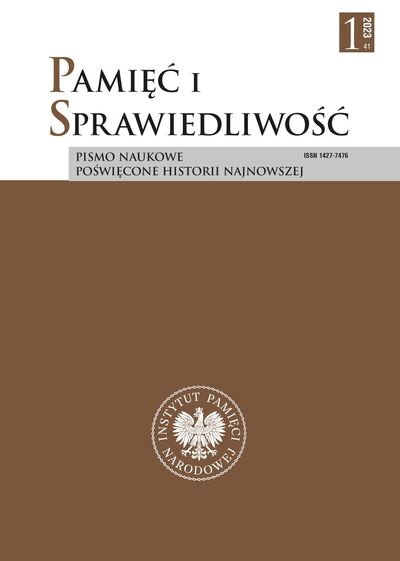Broń, dekolonizacja i zimna wojna – ograniczona pomoc wojskowa PRL dla Trzeciego Świata
Weapons, Decolonisation, and the Cold War – Limited Military Aid by the Polish People’s Republic to the Third World
Author(s): Przemysław GasztoldSubject(s): Military history, Political history, Social history, Post-War period (1950 - 1989), Cold-War History
Published by: Instytut Pamięci Narodowej
Keywords: decolonization; Cold War; arms trade; weapons; Poland;
Summary/Abstract: The article presents the conditions and scope of non-refundable military aid provided by PRL to states and national liberation movements in the Third World. Available documents show that during the Cold War the authorities in Warsaw – compared to other Soviet bloc countries, especially Czechoslovakia and the GDR – pursued a fairly limited policy of arming state and non-state actors in the Global South. This policy was manifested by a cautious approach to requests for the free transfer of armaments and in the thorough investigation by the communist authorities of the position of other socialist countries before deciding on arms shipments. The Democratic Republic of Vietnam received the most aid – it was systematically equipped with modern military equipment between 1965 and 1975. Aid was also provided, to a much lesser extent, to the People’s Democratic Republic of Yemen, Ethiopia and Nicaragua, as well as to national liberation movements such as SWAPO, MPLA, PAIGC, FRELIMO and ZAPU. Free military aid was not treated by the communist authorities as a strategic tool for building influence in the Third World.
Journal: Pamięć i Sprawiedliwość.
- Issue Year: 41/2023
- Issue No: 1
- Page Range: 208-244
- Page Count: 37
- Language: Polish

